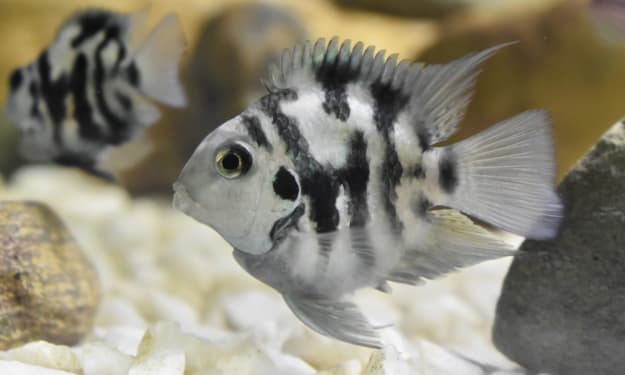Feeling lonely, does keeping a pet really work?
Owning a cat has been shown to reduce feelings of loneliness and depression

Scientists have long known about the Pet Effect on people's mental health and quality of life, and have conducted a number of studies on the Effect. Australian researchers conducted a study of 92 cat owners and 70 people without pets to determine the relationship between their mental health and pet ownership rates. The findings suggest that cat owners do have higher levels of mental health than people without pets. On questionnaires, cat owners reported feeling happier, more confident and less nervous. They also sleep better and focus better. Owning a cat can also be good for kids. A survey of 2,262 children aged between 11 and 15 in Scotland. Researchers have found that children who have a strong bond with cats have a better quality of life. The stronger a child's attachment to their cat, the more likely they are to be healthy, energetic, focused, and less sad and lonely. Cat Protection UK conducted a 2011 study of 621 people aged between 26 and 55 on the Mental Health Foundation's website. Half of the respondents admitted to having a current mental health problem. The survey found that 87 percent of people who own a cat believe it has had a positive effect on their lives; Seventy-six percent of people think their cat's company makes them better at life; A third of those surveyed said petting a cat was a calming and rewarding activity. Cats don't just have a positive effect on the mental health of their owners, research has found that cloud cats also have a positive effect on mood. Feelings of loneliness, sadness and anxiety were reduced and feelings of happiness and satisfaction increased after watching cat videos or pictures. There are many domestic and international studies on the effects of cats on the mental health of owners, but only a few are listed here for space reasons. Taken together, cats have a positive impact on the mental health of people of all ages. In the treatment of depression, anxiety, adhd, autism, relieve loneliness, improve social skills and other aspects have a certain effect. In foreign countries, cats are also widely used as auxiliary therapeutic animals.
Emotional Support Animals (ESA), as its name implies, is an animal that provides Emotional Support for human beings. It can alleviate and relieve negative Emotional or psychological symptoms of human beings through them, which is usually not limited by species. Abroad, if you suffer from anxiety, depression, PTSD (post-traumatic stress disorder) or any other mental illness, you may be eligible for ESA with a prescription from a psychiatrist. More than 200,000 ESAs have been registered abroad, with dogs and cats topping the list. Cats are ideal for those who need ESAs. They are easier to keep than dogs, small in size and calm in personality, and can provide a quiet and comfortable environment for their owners. A Cornell University study found that attachment to cats can have a calming effect, especially on people with mental illness. Petting a cat relieves stress, improves mood, and makes it easier for owners to connect with others.
In foreign countries, cats are also often used as part of medical plans to provide care and comfort for nursing homes, nursing homes, schools, shelters, hospice centers and other institutions. Sometimes it helps them with depression and phobias. UCLA Health's animal-assisted therapy study found that human interaction with animals, and petting of animals, triggers the release of serotonin, prolactin, and oxytocin, all of which boost mood in humans. It reduces anxiety and loneliness. Cats also offer help to people with autism. Studies suggest that playing with family pets such as dogs, cats and hamsters can be beneficial for people with autism. Playing with a pet is a complex behavior that provides patients with the opportunity to practice and understand social interaction. The arrival of pets also strengthens family cohesion, and individuals' interest in pets encourages them to become more involved in family interactions.
How the cat Heals People Why does the little cat have such great magic power and how does it heal people? Research suggests that cats' purr of contentment is an auditory stimulus, and when humans receive this constant frequency signal, it relaxes our mind and brings us to peace. Research by psychologist Alan M Beck has shown that when people pet their pets, they feel less stressed. Specific physiological changes include decreased blood pressure, heart rate, muscle relaxation and so on. When petting a pet, certain sensory nerve endings in the skin are activated. Activation of these receptors increases the release of endorphins (relaxation) while temporarily lowering cortisol levels (the stress hormone). A common symptom of many people with mental illness is a lack of movement and interest. Clinical psychologist Dr Perpetua Neo believes owning a cat gives people a sense of purpose, with owners needing to feed, poop, tease and give their cat more attention at regular times. These may sound like small tasks, but when your cat's life is in your hands, these small tasks become the purpose of your life and help the patient move on. Research by Jeffrey Roelofs, Ph.D., psychologist, has found that distraction can effectively reduce symptoms of depression and anxiety. Cats are furry creatures that can make us laugh when they are stupid, make us angry when they are naughty, and worry when they are sick. We are attracted by their movements and behaviors. When dark thoughts invade our minds, cats can distract us from getting caught up in them. Keeping a cat does have a good healing ability for the human mind, but it is still necessary to remind friends who have mental problems, if you are planning to keep a cat to help yourself, it is best to consult a doctor to assess whether the current situation is able to keep a cat. Because keeping a cat is not so easy, it requires a lot of energy and patience.
About the Creator
Enjoyed the story? Support the Creator.
Subscribe for free to receive all their stories in your feed. You could also pledge your support or give them a one-off tip, letting them know you appreciate their work.





Comments
There are no comments for this story
Be the first to respond and start the conversation.